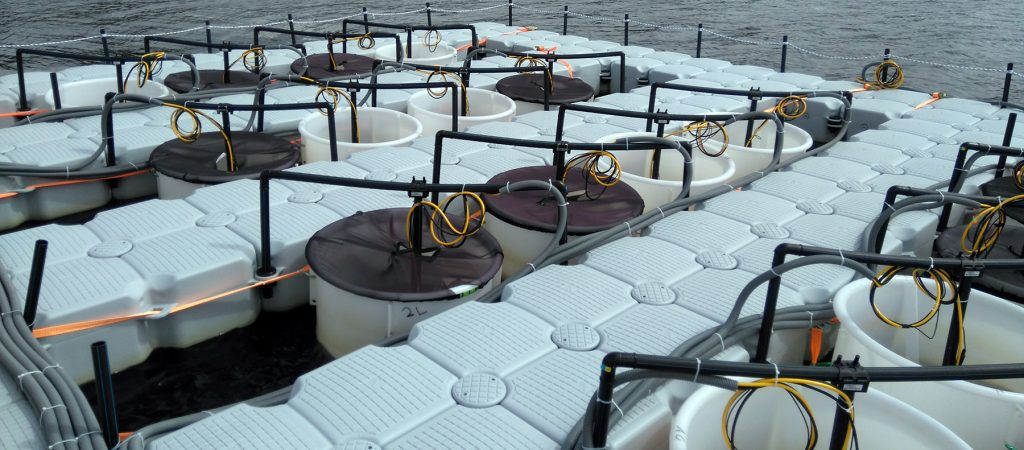Aquanet
Aquanet is a project that focuses on the study of the resistance and resilience of an ecosystem due to disturbances and environmental disturbances.
These disturbances can be for example environmental changes. The study focuses on how the ecosystems adapt. The project is using mesocosms to manipulate the ecosystem by reducing the light availability and adding predators.

2018
In 2018, we look at brownification of the water and how it affects the water quality and the ecosystem in Bolmen, which is one of Scania’s most important water sources. The trend is an increased brown coloration of seawater and the project is working to gain more knowledge about how it affects the water and the plants and animals that live there.
During six weeks experiments in the closed systems, mesocosms, are taking place with Bolmen water. In some of the mesocosms we will increase the brown color of the water. Since we use existing seawater, we get the naturally occurring ecosystem and existing water chemistry. During the experiments we look at how bacteria, plant and animal plankton react to the brunification and how nutrition, PH and acid levels change.
2017
The project consists of five stations located at Svartberget, Erken, Asa, Skogaryd and Bolmen. At the stations the research is conducted by local personnel and the experiments are done on a floating platform containing 16 mesocosms. The platform is equipped with 64 sensors to monitor parameters on-line, such as temperature, pH, oxygen, CH4 and CO2. This will generate big amount of data and make it possible to study the ecosystems in a more detailed manner.
The personnel at the stations are responsible for maintenance of the platform, regular water sampling and preparations of the samples for analysis at the associated laboratory. Further, the water samples will be analyzed for bacteria, zooplankton and phytoplankton.
The project has developed a standardized working protocol for all the participating stations to ensure the reliability of the results. This is because different working procedures might lead to different results. This is crucial for ecosystem studies in order to be able to detect general behavioral patterns and how local differences in parameters might affect the outcome. This project is one of the kinds since it has deployed identical platforms and working procedures. And is also being conducted at stations spread in a climate gradient in Sweden.


